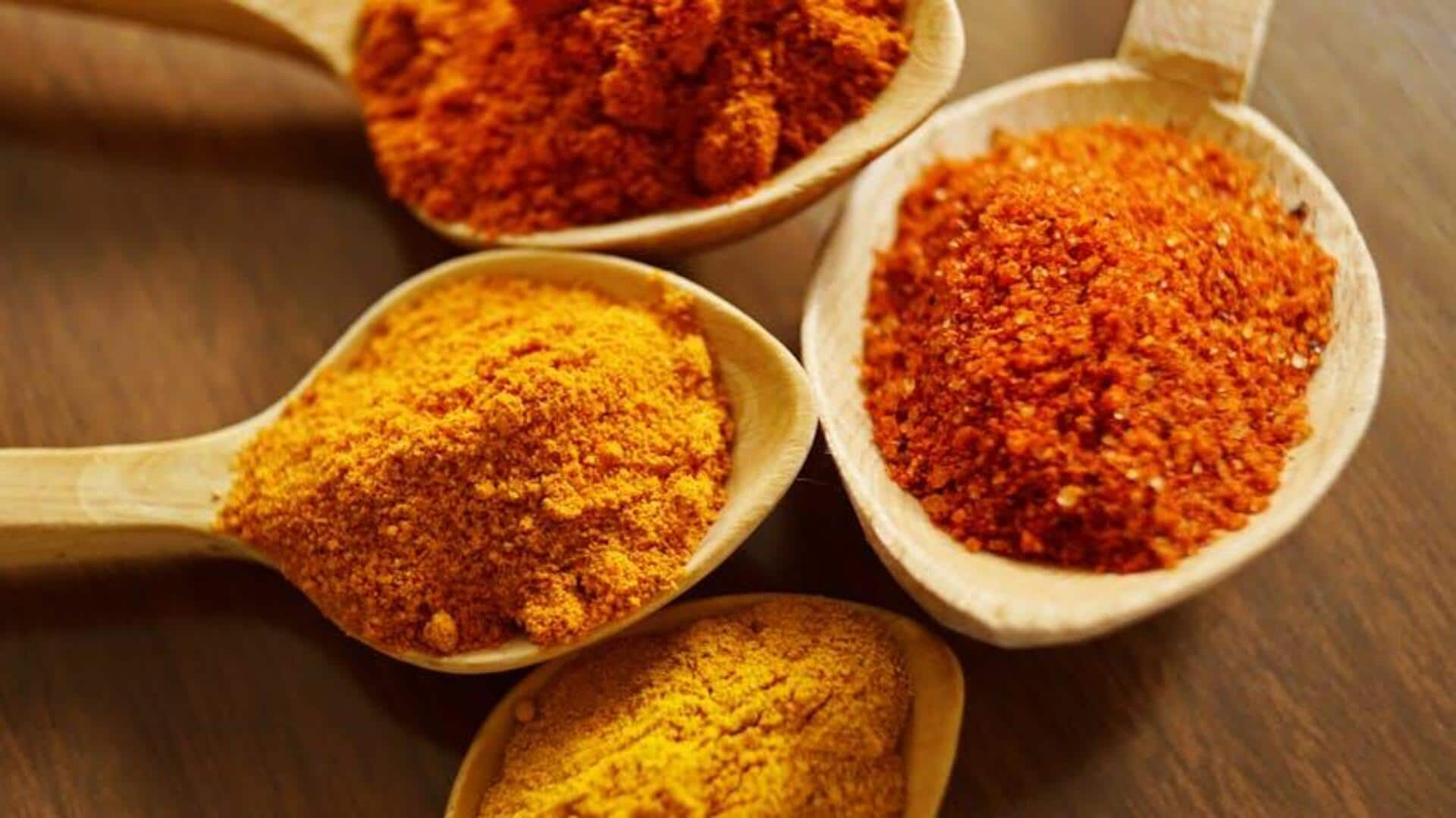
Essential spices in Libyan vegetarian cuisine
What's the story
Libyan cuisine, with its vibrant flavors and deep-rooted traditions, presents a delectable fusion of Mediterranean and North African influences. Notably, vegetarian dishes hold a prominent place in Libyan food culture, with spices serving as the heartbeat of their unique flavor profiles. This article delves into the key spices that shape Libyan vegetarian cuisine, shedding light on their significance and application.
Cumin
Cumin: The quintessential spice
Cumin is the secret weapon of Libyan vegetarian cuisine. This versatile spice is used to flavor everything from hearty soups and stews to refreshing salads and spreads. Its warm, earthy taste complements a range of dishes, including tajin zitoun (olive stew) and mbattan (potato stuffed with herbs). While ground cumin is most commonly used, whole cumin seeds also make an appearance in certain traditional recipes.
Paprika
Paprika: Adding color and warmth
Paprika is a key spice that adds a touch of warmth and vibrant color to Libyan vegetarian dishes, enhancing their flavor without overwhelming the palate. It's often used in dishes like shakshouka (tomato-based dish), where it contributes a gentle heat and beautiful red color. You can choose from sweet, smoked, or hot paprika, depending on your preference, making it a versatile addition to your spice cabinet.
Hararat
Hararat: The spice blend staple
Hararat is a classic Libyan spice blend. While the specific combination differs between households, key ingredients usually encompass black pepper, cinnamon, cloves, and nutmeg among others. This blend is particularly important for imparting depth of flavor to vegetarian dishes like couscous or stuffed vegetables (mahshi). By using hararat in your recipes, you can recreate the distinct taste of Libyan cuisine at home.
Mint
Mint: A refreshing touch
Libyan cuisine often incorporates fresh mint leaves for their invigorating aroma and cool flavor. They're commonly tossed into salads such as tabbouleh or sprinkled over dishes as a fragrant garnish right before serving. And of course, mint is a star ingredient in many teas and drinks, which are served with meals or enjoyed as a post-meal palate cleanser.
Turmeric
Turmeric: The golden spice
Turmeric adds a beautiful golden hue and a host of health benefits to Libyan vegetarian dishes. Especially in rice dishes like ruz mbauar (spiced rice), it lends a delicate earthiness while painting the grains with its vibrant yellow color. And, not to forget its anti-inflammatory properties. It is a prized spice, with applications extending beyond the kitchen.